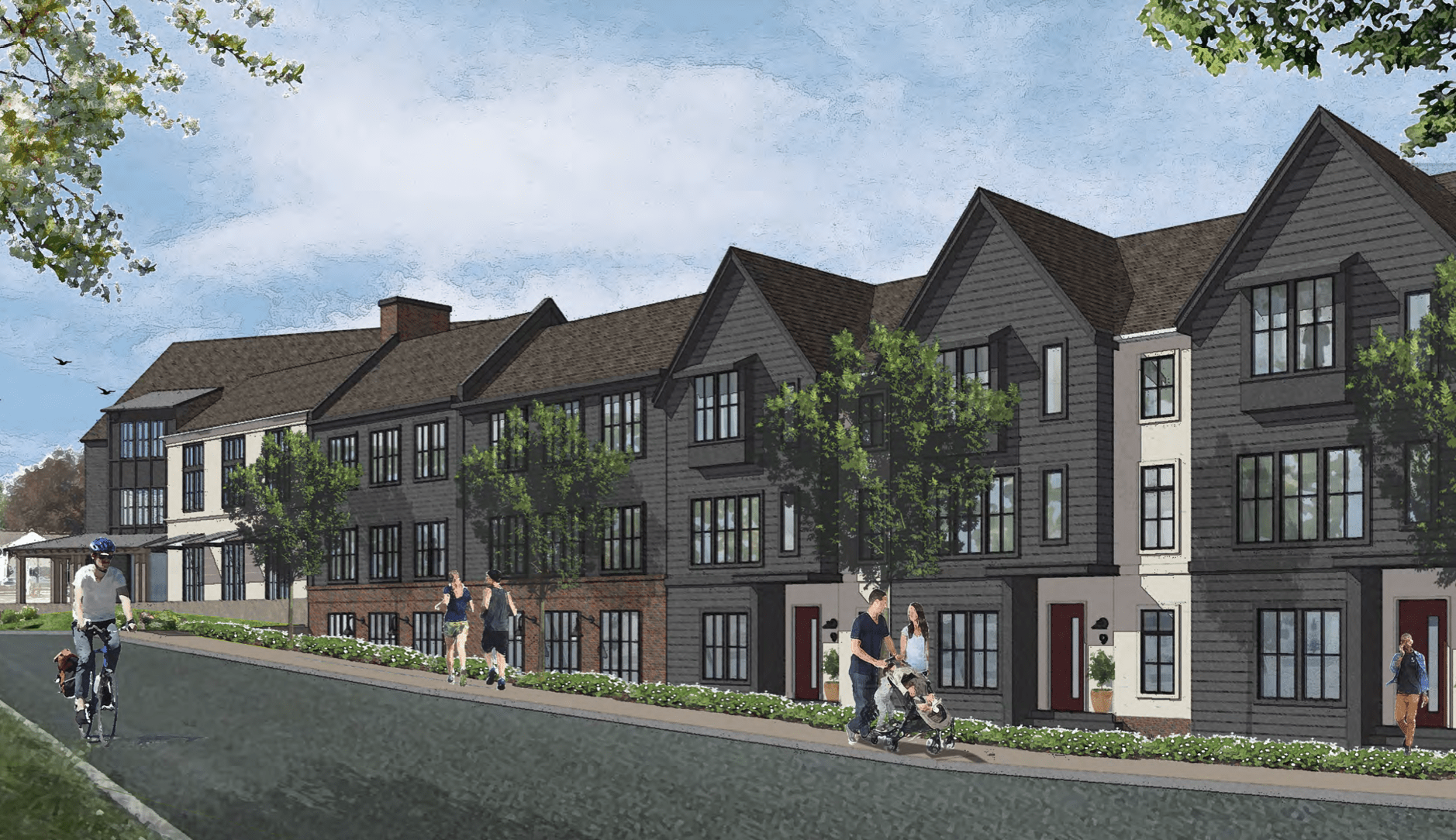
SHREWSBURY – The appeal of the Beal Commons project will be heading to trial.
Massachusetts Land Court Judge Kevin T. Smith heard arguments from plaintiffs and defendants on Feb. 29. Both sides asked for summary judgment, but Smith opted to bring the case to trial.
Beal Commons is a proposed 53-unit, 7,000-square-foot commercial-residential development. The Planning Board approved the project and four special permits by a 4-1 vote in April 2023.
In May, a group of residents appealed the special permits, leading to the Feb. 29 conference.
For the appeal to prove successful, the plaintiffs — seven abutters to the proposed site of Beal Commons at 1-7 Maple Ave. — must show evidence of “particularized injury” and demonstrate that the harm to their property would be different than that of the rest of the community.
The defendants — the Planning Board and developer Shrewsbury Hascall MM LLC — sourced affidavits from experts to argue that no individualized harm exists. For example, the defendants outline in court documents that while the plaintiffs are concerned about the light from headlights entering the property, many said in depositions leading up to Feb. 29 that they already dealt with those “injuries” when Maj. Howard W. Beal School was in operation.
On the other hand, the plaintiffs “claim that the increase in traffic will unreasonably interfere with their ability to enter and exit their individual driveways and will also result in an undue increase in headlight glare entering their homes due to vehicles exiting the development site,” according to court documents.
RELATED CONTENT: Beal Commons appeal back in court on Feb. 29
To back up their argument, the plaintiffs submitted the affidavit of Paul Cheever, who the plaintiffs say is an expert on traffic. Cheever argued that the conclusions presented by defendants’ traffic experts are flawed.
Much of the debate on Feb. 29 hinged on Cheever’s testimony. The defendants questioned Cheever’s credibility, arguing that he is not qualified and that the court should disregard his testimony.
“This is a summary judgment motion. The court may not make credibility assessments in determining whether there is an absence of a triable issue of fact. Cheever is a registered engineer who claims to have experience in traffic-related issues. At this time, the court takes Cheever’s opinions at face value,” Smith said. “The defendants will have an opportunity at trial to challenge Cheever’s qualifications and his opinions and conclusions. Until then, his affidavit provides sufficient evidence to support the plaintiffs’ claim that they are entitled to a trial on the merits.”
A trial date is scheduled for June 3.

















